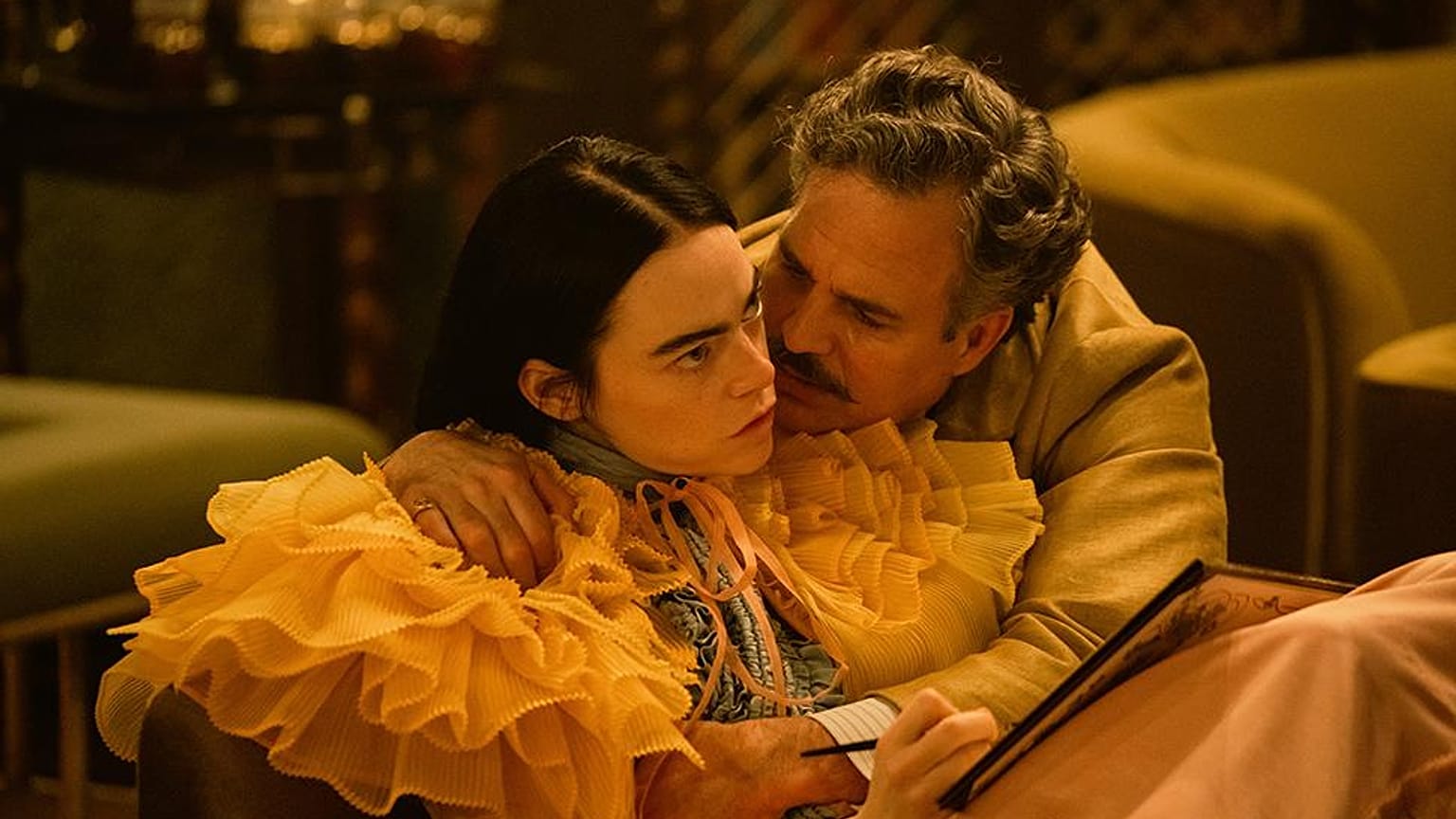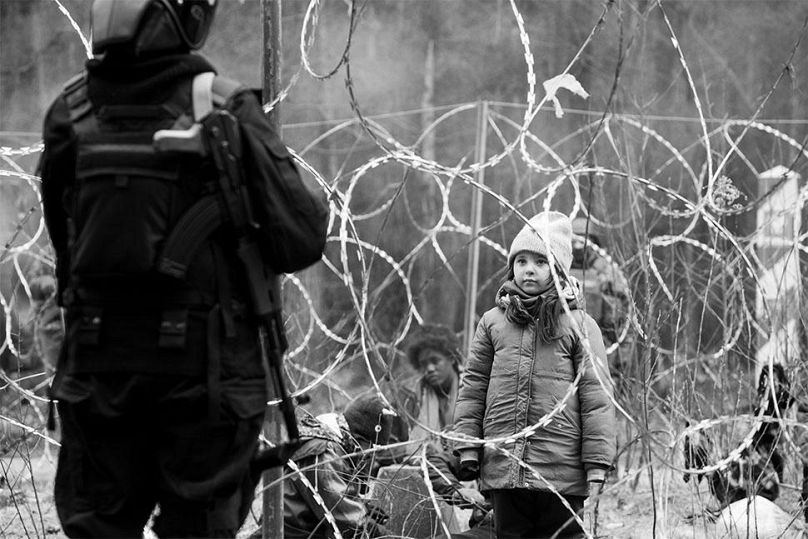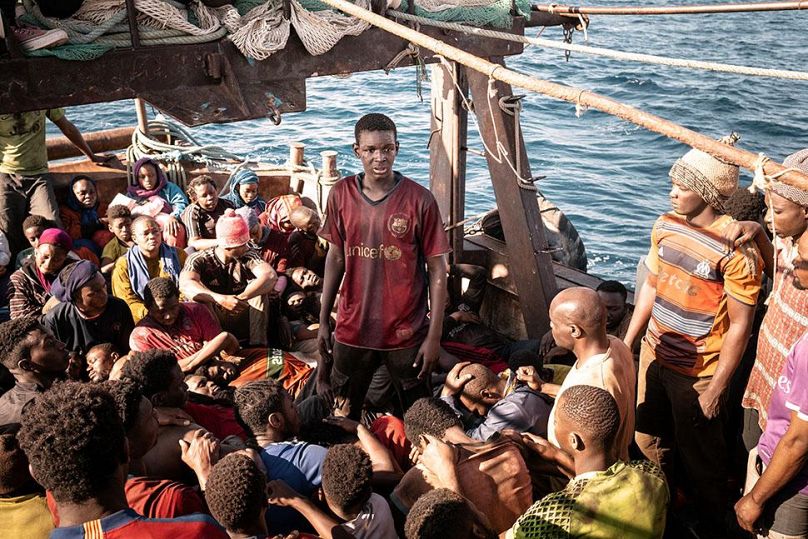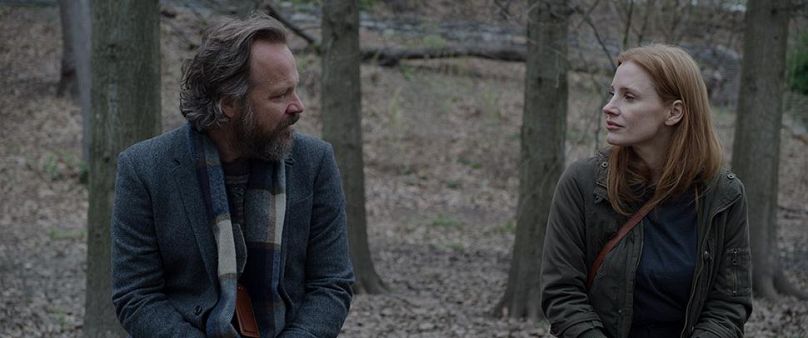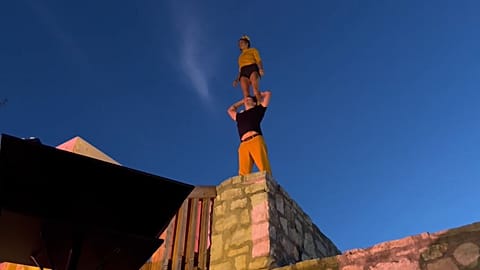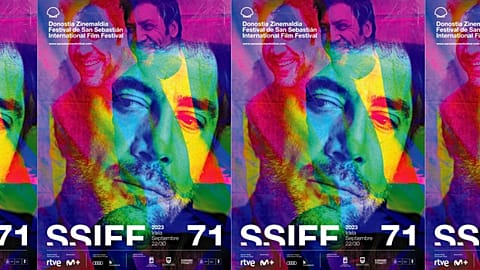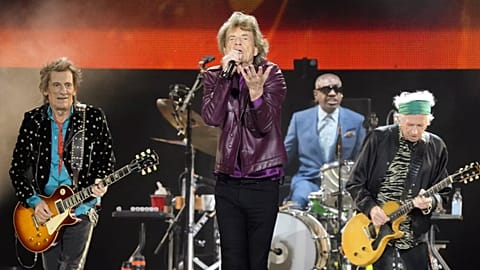And the winner is...
 ADVERTISEMENT
ADVERTISEMENT
The 80th edition of the Venice Film Festival has come to a close, with this year’s Competition jury, led by American filmmaker Damien Chazelle (La La Land, Babylon), awarding the coveted Best Film Golden Lion to Yorgos Lanthimos’ Poor Things.
The film succeeds last year’s documentary All The Beauty And The Bloodshed by Laura Poitras (a member of this year’s jury), and was a firm favourite this year on the Lido.
Scroll down for the full list of winners.
We predicted that it was a two-way race between Poor Things and Agneiszka Holland’s Green Border for the top prize, and both got awarded major awards, with Holland’s stunning film taking home the Special Jury Prize.
Poor Things was the highest rated feature of the Competition with an average of 4,24 / 5, followed closely by Evil Does Not Exist (3,80 / 5) and Agnieszka Holland’s Green Border (3,76 / 5).
Lanthimos, considered the leading Greek Weird Wave exponent, directs an adaptation of Alasdair Gray’s 1992 cult novel, a “diabolical fuckfest of a puzzle” (as one character says referring to the adventure that slips from his grasp) which uses the language of Gothic conventions – with clear parallels to 'Frankenstein' and 'Alice in Wonderland' – to talk about the role of men and women in society. The director’s usual mastery of tone is a joy to behold, as is Tony McNamara’s mordantly funny screenplay. Thematically layered, raunchy, stylistically executed and above all fun, it’s got it all and feels like a well deserved win for Lanthimos. Read our full review.
The director’s previous Venice premiere, The Favourite, managed to accomplish the rare task of getting two separate awards in 2018: the Grand Jury Prize and the Volpi Cup for Best Actress for Olivia Coleman. The film went on to receive nine Oscar nominations, including for Best Picture and Best Director, and coming home with the Best Actress Oscar for Coleman.
Considering the oldest international film festival has a proven track record for premiering future Oscar contenders, you can expect Poor Things to be an early frontrunner for next year’s Oscars - alongside Oppenheimer, Barbie, and Killers of the Flower Moon – which premiered earlier this year at the Cannes Film Festival. You can also bet that lead actress Emma Stone, who has never been better than in her turn as the hilarious and evolving “pretty little retard”, will hoover up the performance awards in the coming months.
The runner-up prize went to Aku Wa Sonzai Shinai (Evil Does Not Exist) by Ryûsuke Hamaguchi.
After this masterful 2021 double-tap of Wheel of Fortune and Fantasy and the Oscar-winning Drive My Car, the Japanese filmmaker surprised everyone with the announcement of his new film, Evil Does Not Exist. It came out of nowhere and went straight into Venice’s competition selection. No complaints here.
The film follows a father and daughter who live in a small village close to Tokyo. One day, the village inhabitants become aware of a plan to build a glamping site, a project that will have a negative impact on the local water supply and endanger the ecological balance.
It sounds straightforward but it’s anything but. Enigmatic and allusive, Hamaguchi's parable offers up no easy answers and is a much tougher sell than his previous films. However, Evil Does Not Exist is a gently haunting revenge film of sorts that demands to be rewatched - and deserves to be celebrated.
The Special Jury Prize went to Zielona Granica (Green Border) by Agnieszka Holland.
Many saw the film winning the top prize; still, the Special Jury Prize is an important recognition for a vital viewing experience.
“It was a struggle but it was a duty,” said Holland when accepting the prize, referring to the challenges of filming this unique work.
Green Border was one of the most talked about films of the festival. It tackles the migration crisis at the Poland-Belarus border over the past two years, and is an incisive indictment of a continuing EU crisis, as well as a reminder that many are still dying on Europe’s borders.
The migrants from the Middle East and Africa are caught up as pawns in a geopolitical standoff, and the film looks critically at the way Poland's security services pushed back migrants who were lured to the border by Belarus, an ally of Russia.
It also asks vital questions about collective responsibility and inaction in a geopolitical landscape Europe – as a collective – finds itself in.
“We are dedicating this prize to the activists,” concluded Holland on stage during the awards ceremony, in a moving speech.
Written by Holland, Gabriela Łazarkiewicz-Sieczko and Maciej Pisuk, Green Border is based on meticulous research, including interviews with refugees, border guards and activists – an urgent and compassionate work, which has already drawn the ire of Polish Justice Minister Zbigniew Ziobro, who labelled Green Border as “Third Reich propaganda.”
“In the Third Reich, the Germans produced propaganda films showing Poles as bandits and murderers. Today, they have Agnieszka Holland for that," wrote Ziobro on X (formerly Twitter).
Holland noted that Ziobro, who serves as prosecutor general as well as justice minster, commented on her film without having seen it and that she believed his words amounted to defamation, calling them “despicable.” She has demanded an apology from Ziobro and stated she plans to bring defamation charges against against him. She also demanded that he make a charitable donation of 50,000 Polish zlotys (approx. €10,800) to an association that helps Holocaust survivors.
Holland said the comparison to Nazi propaganda was offensive because of what Poland suffered under Nazi occupation during World War II and given her own background. She noted that she was both the daughter of a liaison in the Warsaw Uprising, the city's 1944 revolt against the occupying Nazi German forces, and the granddaughter of Holocaust victims.
“In our country, which experienced death, cruelty and the suffering of millions during World War II, a comparison to the perpetrators of these events is extremely painful and requires an appropriate response,” Holland said.
Its topicality and governmental slamming aside, Holland’s film cannot be reduced to its subject matter, as it is a brilliantly directed and acted black-and-white gut punch, and one of the Polish filmmaker’s very best in an already impressive filmography (Angry Harvest, Europa Europa, Spoor). Read our full review.
The Best Director Prize went, rather surprisingly considering many expected either Bradley Cooper (Maestro) or Bertrand Bonello (La Bête) to win, to Italian filmmaker Matteo Garrone for his film Io Capitano. The film tells the story of the journey of Seydou and Moussa, two young men who leave Dakar to make their way to Europe. It is a contemporary odyssey through the dangers of the desert, the horrors of the detention centres in Libya and the perils of the sea.
Like Green Border, it tackles the topic of immigration and the pursuit of the Europe dream – its promise and sombre reality. Garrone’s film offers a reverse shot compared to the images we’re used to seeing from a western perspective, and like Holland’s film, gives a voice to the ordinarily voiceless.
The film proved to be a favourite amongst both Italian and international press, with an overall average of 3,62 / 5, ranking it the fourth best reviewed film of the Competition.
The film also saw its main star Seydou Sarr win the Marcello Mastroianni Award for Best New Talent.
On the acting front, Peter Sarsgaard won the Volpi Cup for his note-perfect performance in Michel Franco’s Memory. He plays Saul, a man suffering from dementia, and his performance is the furthest thing from caricatural. Sarsgaard delivers a deeply moving portrayal of a gentle man subjected to a disease that he has no control over.
The American actor referred to the “shared communal experience that is a sacred sacrament of society” in relation to cinema and namechecked the ongoing Hollywood strikes. In particular, he referred to the threat of AI, stating that “an actor is a person, a writer is a person” – and that we risk of experience of the “sacred sacrament” being handed over to the “eight millionaires who own (AI)”.
Both Jessica Chastain and Peter Sarsgaard are excellent in Memory, which is stomach-knotting stuff - at times gut-wrenching, but also surprisingly tender. The way the film deals the topics of sexual abuse, dementia, denial, and Festen -level family dynamics is well judged and makes for an incredibly memorable addition to this year’s Competition.
Cailee Spaeny won Best Actress for Sofia Coppola’s Priscilla, which was the furthest thing from the toothless, estate-approved biopic it could have feasibly been. Instead, it was a sensitive and absorbing adaptation of Priscilla Presley's 1985 memoir 'Elvis and Me', central to which is 25-year-old Spaeny’s uncaricatured turn as the leading lady.
We thought she would win the Marcello Mastroianni Award for best newcomer, but the jury decided to give her the top prize. You may have glimpsed Spaeny in Bad Times at the El Royale, as the young Lynne Cheney in Vice, or in series like Devs or Mare of Easttown. However, this is without a doubt her big break, showing that she’s capable of shouldering a big production and acing the assignment.
Full list of winners:
- Golden Lion - Best Film: Poor Things (Yorgos Lanthimos)
- Grand Jury Prize: Aku Wa Sonzai Shinai (Evil Does Not Exist) (Ryûsuke Hamaguchi)
- Special Jury Prize: Green Border (Agnieszka Holland)
- Silver Lion - Best Director: Matteo Garrone (Io Capitano)
- Volpi Cup for Best Actress: Cailee Spaeny (Priscilla)
- Volpi Cup for Best Actor: Peter Sarsgaard (Memory)
- Best Screenplay: Guillermo Calderon and Pablo Larrain (El Conde)
- Marcello Mastroianni Award for Best New Talent: Seydou Sarr (Io Capitano)
The Venice Film Festival took place from 30 August – 9 September. Click here for our full daily coverage of this year’s 80th edition and stay tuned to Euronews Culture for our complete debrief of the festival: the highs, the lows, the talking points and what to look out for on the big and smaller screens in the coming months.














